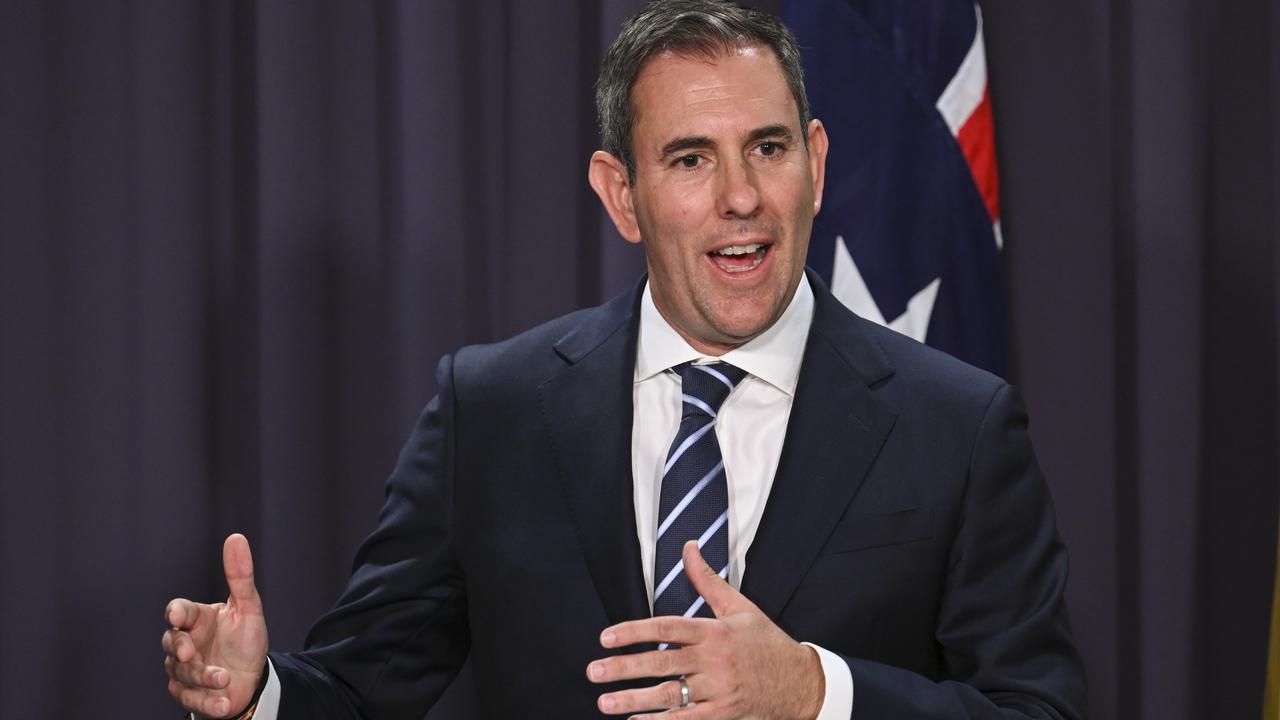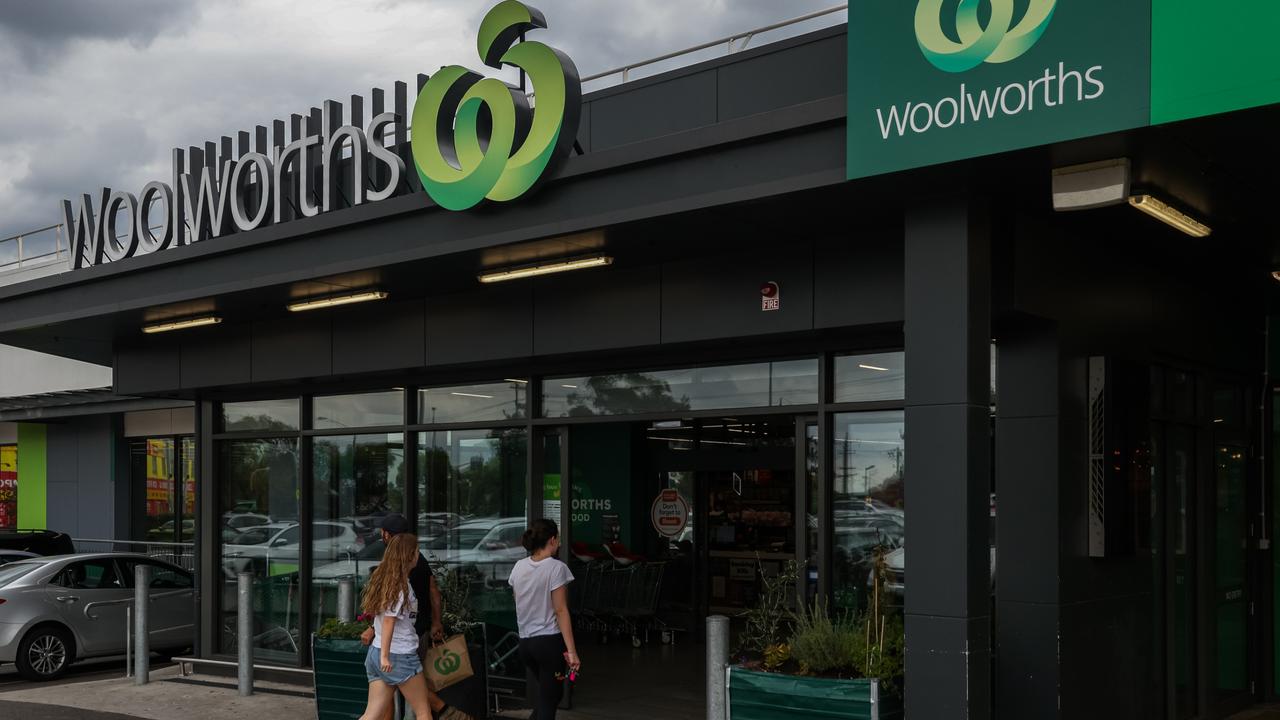For Jim Chalmers, Coles and Woolies make better politics than policy
It’s pure politics for the Treasurer calling out supermarkets as needing any special treatment over other more concentrated sectors.

In just two years the competition regulator has waived through more than $1.1bn of acquisitions by supermarket major Woolworths in deals that have pushed it into adjacent business lines like pets, online retailing and food distribution.
At the same time, the Australian Competition and Consumer Commission blocked efforts by Woolies to buy smaller supermarkets like the IGA on the outskirts of Queanbeyan.
Coles has been much quieter on the deal front, buying two milk processing plants and a fresh meals business. The businesses Coles acquired were about to be closed down or had collapsed.
The special call out on supermarkets by Treasurer Jim Chalmers when it comes to an overhaul of acquisitions rules suggests one of two things: he believes the regime isn’t fit for purpose or he thinks the regulator hasn’t been doing its job.
He’s wrong on both counts with the big supermarkets being blocked where it matters, while the likelihood of a blockbuster merger between the two retailers is as about as likely as CBA and Westpac getting together.
Every internal and external poll is telling the Albanese government that cost of living is the top political issue and this is piling on the pressure in Canberra by shaping policy.
This is no reason but politics for Chalmers to call out supermarkets as needing special treatment over other sectors of the economy where the likes of aviation, energy, hardware, or even banking are more concentrated than grocery retailing.
Still, Chalmers has bent to the political drums to make compulsory notification to the ACCC over future buyouts by the supermarkets.

The reality is this will make little difference to the supermarkets, which will continue to flag acquisitions to the ACCC as they do. But its still signals the government thinks there’s a structural problem and the sector needs to be treated with caution. That is a backwards step to tilt the field and does little for real competition reform.
The ACCC has yet to uncover any evidence of price gouging as it pushes ahead with its review of the supermarket sector and says the Australian market is more complicated than a simple international comparison.
The supermarkets had been in the ACCC’s sights for some time. The regulator has launched an explosive legal action about how the retailers communicated in-store discounts to shoppers. But the ACCC has been at pains to say this is a case of alleged misleading conduct rather than any misuse of market power.
Future deal-making by supermarkets will see them push deeper into adjacent lines. Things like loyalty, digital and distribution is becoming a more important part of the growth story. Woolworths never got a chance to move into healthcare chain Priceline, which ultimately went to Wesfarmers after a bidding war. That would have opened a new front on how the competition regulator sees Woolies growing its business.
The focus on supermarkets came as Chalmers rightly backed away from a proposal that would have raised the bar for approving mergers across-the-board. The government’s response to the merger reform review is that it has decided to keep the net public benefit test for merger approvals.
As part of proposals released in April the ACCC would have had the power to only approve mergers if the public benefits “substantially” outweighed any detriments arising from a merger.
This would have made the process of getting any mergers across the line more time consuming, with more cases likely ending up in competition tribunal or the courts. Currently it is enough to approve a deal if the public benefits outweigh the detriments.
Much of Chalmers’ competition changes revolve around setting a threshold for mandatory notification of merger deals including if the turnover of the combined businesses is above $200m or global transaction value above $250m.
Another shift is the ACCC is set to be given powers to examine deals between private or unlisted companies including if a stake of more than 20 per cent is sold. This change reflects the rapid rise in private equity activity and more companies being held by funds including superannuation.
The ACCC boss Gina Cass–Gottlieb who had been pushing for the mandatory notification regime said currently there are many transactions that pose real risks to competition that ACCC doesn’t see and can’t review.
Ironically it was Woolworth’s notification of its acquisition of a controlling stake PetStock that has alerted the ACCC that a number of previous acquisitions by the pets retailer had flown under the radar for years.
To push ahead with the buyout Chalmers’ public enemy Woolworths proposed an enforceable undertaking to sell 41 retail stores belonging to the specialty pet chain.
johnstone@theaustralian.com.au
More Coverage
Originally published as For Jim Chalmers, Coles and Woolies make better politics than policy





